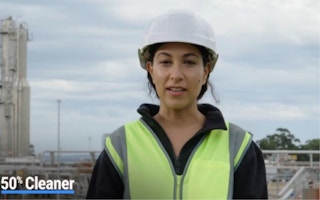Australia’s advertising industry lobby has released a draft code for environmental claims that is intended to weed out greenwashing in marketing communications.
In response to a rise in complaints from consumers about exaggerated sustainability claims in advertising, the industry-backed Australian Association of National Advertisers (AANA) has proposed new rules for advertisers that could prevent carbon-intensive companies such as oil and gas firms from spuriously claiming they are green.
The Environmental Claims Code includes a number of rules advertisers must follow. They must have evidence to back up their environment, social and governance (ESG) claims, not use broad, vague or unqualified claims, and not omit important information that misleads consumers.
To continue reading, just sign up – it’s free!
- Get the latest news, jobs, events and more with our Weekly Newsletter delivered to you free.
- Access the largest repository of news and views on sustainability topics.
- You can publish your jobs, events, press releases and research reports here too!
Newsletter subscribers do not necessarily have a website account. Please sign up for free to continue reading!
For the first time, the code makes specific reference to carbon-intensive businesses, stating that fossil fuels brands must not understate their environmental impact when making green claims “because the overall environmental detriment of these industries is likely to overshadow any environmental improvements made by a business.”
The code also covers businesses and industries rather than just products, and includes the use of images and graphics in advertisements.
Public consultation on the the draft code is ongoing, with a deadline of 22 March.
Belinda Noble, founder of Comms Declare, a non-profit that campaigns for a fossil fuel-free marketing industry, said she welcomes the expansion of the code to include high emissions industries, as well as misleading environmental imagery and industry-wide greenwashing.
However, there are elements of the revised code Noble said she hopes would be amended in the final draft, to prevent net-zero claims based on the use of offsets and “unproven” technologies such as carbon capture and storage.
The draft code also does not require that evidence to back up a green claim is publicly available when the ad is run. Unlike guidelines in the United Kingdom, it does not stipulate that advertising should not “encourage behaviour grossly prejudicial to the protection of the environment”.
Preventing offsets-based net-zero claims would bring Australia’s rules in line with the European Union’s advertising code. The European parliament voted on Wednesday to outlaw net-zero claims based on carbon offsets by 2026, and also curb the use of terms such as “environmentally friendly”, “natural”, “biodegradable”, “climate neutral” and “eco” without evidence to back up claims.
The release of the draft code comes six months after an advertisement for Australia’s fossil fuels lobby, Australian Petroleum Production & Exploration Association, was banned by the country’s ad watchdog for claiming that natural gas is “50 per cent cleaner” without clearly specifying what it was cleaner than.
John Pabon, a Melbourne-based sustainability consultant and author of the book The Great Greenwashing: How Brands, Governments, and Influencers are Lying to You, suggested that the new rules are treated with caution, as they were drafted by a self-regulated industry body overseeing a sector that has historically been “the wild west of ESG compliance”.
“I’d question whether they [the rules] are robust enough to actually have an impact,” he told Eco-Business. Pabon also questioned whether the draft code adds meaningfully to anti-greenwashing legislation that exists in other jurisdictions, or is merely a response to protect the advertising industry from government regulation.
Australia’s finance regulator has been faster to clamp down on greenwashing than the country’s advertising watchdog. The Australian Securities and Investments Commission (ASIC) took three funds – Active Super, Mercer Superannuation and Vanguard Investments – to court over greenwashing claims in 2023.
“We are trying to send messages to the market that we won’t tolerate this [greenwashing in the finance sector],” ASIC deputy chair Sarah Court told The Financial Times last month.
Australia is among the most progressive countries in Asia Pacific for tackling greenwashing. Only South Korea has taken steps to punish companies for greenwashing, proposing fines for brands found guilty. Last December, Singapore’s ad watchdog ruled that an ad campaign for airconditioners misled consumers and was guilty of greenwash, the first ruling of its kind in Southeast Asia.

















